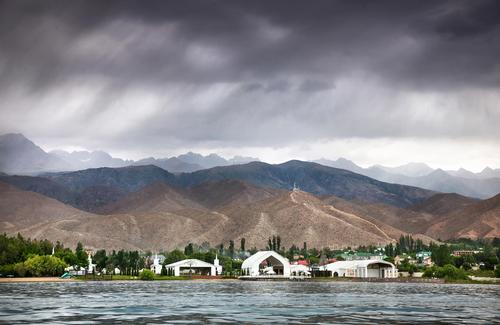11 Sep 2014
Kyrgyzstan's natural health resorts gain in popularity due to low prices
BY Helen Andrews

Health and wellness vacations in Kyrgyzstan and other former Soviet Union destinations are gaining in popularity due to the low cost of retreat packages and natural resources such as mineral water springs and mud baths.
Situated 1,775m (5,823ft) above sea level amid evergreens and alpine meadows, the Issyk-Ata health resort boasts 130 mineral water springs, half of which maintain a constant temperature of 38-50°C (100.4-120ºF). The elevated mountain climate, views of the Lake Issyk-Kul and mud baths are components of the relaxation experience at this resort.
“Treatment in Kyrgyzstan’s health resorts has been rapidly developing in recent years,” said Chynara Tokobayeva, chief of the Trade Union Federation Health Resort Administration (FPK), in an interview with CentralAsiaOnline.com. “About 10,000 people vacationed at health resorts in 2009. Last year we took in almost 20,000 visitors at our 11 resorts.”
“The low cost of the trips plays a significant role [in these resorts’ success,]” Tokobayeva added.
“Our prices are entirely affordable,” said Alchan Osmongaziyev, director of the Issyk-Ata health resort. “A 20-day stay, including three meals a day and all treatments costs 18,400 KGS (US$353, €273, £219).”
The vast majority of holiday-makers are Kyrgyz, but recently more Kazakhstanis and citizens of other CIS countries are arriving for tourism purposes, according to officials.
“We paid 11m KGS (US$212,000, €164,000, £132,000) in taxes in 2013,” Osmongaziyev added. “Our annual payroll was about 15m KGS (US$289,000, €223,000, £179,000). In 2010 we took in 4,072 people. In 2013, it was 6,011 people.
These resorts are largely financially self-sufficient – with small sums from the Social Development Ministry and the Fund for Improving Workers’ Health, which provides Kyrgyz workers free trips to the country’s resorts.
The Economy Ministry recently proposed the elimination of the Fund for Improving Workers’ Health because it considers it an “inefficient way of improving health that places an additional burden on the business community.” The FPK has taken a stand against this initiative, commenting that they help poor families regain their health during free trips for workers.
Close Window